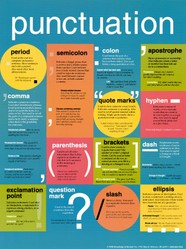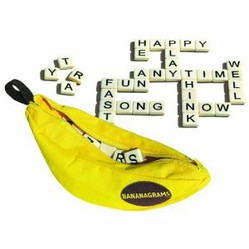Unfortunately, even after learning what the "rules" are for commas, some people find using them tricky. There are cases where you should not use a comma that on first look resemble places where commas are recommended.
There are other places where commas are optional, depending on the style of the writer.
I've an upcoming article on these cases to show what I mean.
And, as I said at the beginning of this article, many people who write online have dispensed with comma use altogether, possibly because they are writing quickly and can't be bothered to go over their work with the eye of an editor.
Because punctuation is a convention that has been agreed upon and carefully taught as a way to ensure our communication is clear, however, I think we should at least try to be more careful how we use it.
I'm sure you'll agree with me when I say that miscommunication has often been the culprit for family feuds and even wars. On a more mundane level, I know I have at times purchased something that I thought was supposed to be one thing and found out later that I'd misunderstood what I'd read on the label.
Kids can be funny at how they misinterpret what they think they hear the adults say.
Older people (like Mr. Magoo) can get funny ideas when they mishear conversations, too.
These examples can be funny, but they can also sometimes be tragic. As writers, we are responsible for the words we use and how we get our messages across. Punctuation is one way we can be sure that what people read is indeed what we were trying to convey. That's why people started to use agreed upon punctuation in the first place.
Maybe the world is changing so fast that the language is changing with it, and we will one day no longer share these rules of punctuation. I hope, however, that the goal of clear communication is not swept away with the discarded rules.


















 Children Learn Through Playon 09/17/2015
Children Learn Through Playon 09/17/2015
 Boston Public Gardenon 06/19/2015
Boston Public Gardenon 06/19/2015
 Remembering the Supremeson 01/20/2014
Remembering the Supremeson 01/20/2014
 How to Help Your Baby Sleepon 09/14/2013
How to Help Your Baby Sleepon 09/14/2013



Please Leave Your Comments.
If you know your grammar rules, it's easy. Nice review Sheila.
Thanks for your kind comments, WiseFool. (I love that name!) We all make the occasional mistake. That's why it's useful to review the rules now and then and to check our work.
When we're in the thick of writing, we're thinking more of what we want to say, but after we've finished our draft, it's a good idea to look it over for mistakes. I used to tell students to read a piece of writing over more than once, focusing each time on a different aspect, such as spelling or punctuation or word usage.
On the internet, we're all in such a hurry that we often don't take the time. However, sometimes it looks as if we haven't read over our draft at all before we publish it for all the world to see. If we realize that real human beings are reading what we write, though, we may consider them enough to clean up our writing as a matter of respect for the reader.
Although many people are very forgiving of mistakes they read online, I think many more do feel irritated by blatant mistakes. These mistakes can come across as a sign that the writer doesn't really care about the reader, or doesn't care enough to make the reading as pleasant as possible.
Thanks, Sheila for all this wonderfully useful info. I loved 'Eats, Shoots & Leaves' when I read it about...ohhh, six years ago. Still don't always get my comma placement right, though.
Thanks so much, bolillie!
Funny, Wendy, but apostrophes are my next article. It's almost ready to be published!
Thanks so much for all your kind comments. We all make these little mistakes, especially when we write online for some reason. It's helpful to be reminded now and then on what the grammar rules are.
Thank you for this, I have not yet read anything so helpful when it comes to the use of comma's. I will def improve my correct comma usage now. I'll be back...
I spend a lot of time figuring out if a comma should go here or there. I still never get it completely right. Great article!
Thanks, Digby! I don't claim to never make a mistake myself. I often get embarrassed when I reread some of my own articles and find careless errors. Still, I think being aware of what good writing looks like is a positive thing. As long we are not too critical of others but work on making our own writing less sloppy, we can only raise the bar on quality. Thanks for commenting.
Thank you, too, Moonbeam. I appreciate your encouragement.
I'm always nervous when I leave comments on Wizzles about grammar, spelling, or punctuation. This was a great tutorial though, and I wanted to say how well written it is. I hope that the internet doesn't become an excuse to forget about spelling and punctuation.